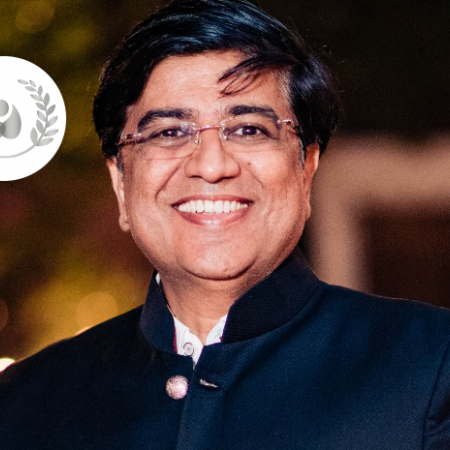October 19, 2023
Sunil Patwari, Managing Director at Singapore-based Seasons Overseas talks to Sonia Sharma about the importance of collaboration, emerging African markets and developing the Pulse Atlas.


The first committee I was involved with was the speaker committee during the Covid-19 pandemic, where we did a lot of online events to get all of our members more engaged.
The second committee that I was involved in was my dream project – Pulse Atlas. This was not an easy one, but with the support of GPC staff and members, we managed to create and establish a successful base which was very well accepted, received and recognized by the whole industry.
The third is the current committee that I work with which is the membership committee. Our plan and wish for this committee is to grow membership by up to 30-50%, (or hopefully even more!) with the support of all GPC Members. Aside from this, we want to continue having a strong membership committee which, will naturally, help us in gaining and retaining more members.
Pulse Atlas is a very unique product, and I believe it is must for any industry. The database is invaluable, and as an industry, this is something we lacked before, but now that we have it, it is an excellent tool.
It is very informative for GPC members - both new and old, and GPC will need to update it on a regular basis to keep it dynamic, relevant and vibrant.
Before trading, organizations definitely need to do their own ground work. However, once they have built a base and established themselves, as well as being a member of GPC, this will give them recognition and acceptability within the market. This is because the GPC network connects you with the main pulses players worldwide, opening up a world of collaboration.
Emerging markets in Africa are doing fantastically well, and growing at a great pace.
In terms of pulses, there has been good progress and in recent years there has been very good progress because of high demand from other destinations.
There were some challenges in Mozambique for shipments and logistics, which were created by them, but this looks to be getting sorted now.
Overall, African logistics are not efficient as there are a lot of delays in vessels, for example, vessels will skip port several times due to waiting time and delays there. In fact, not many carriers call these ports as the overall handling is very slow and poor. So, generally, logistics are always a challenge.
For investments, financial security is also continuously an issue. There needs to be a good, trustworthy team to handle the investments, and sometimes, even investment ownership can be challenging. Any high risk comes with high rewards – that’s why people invest in these markets.
Myanmar is going through lot of turbulence at the moment due to the instability of the current political and financial crisis. It’s a very uncertain market; one needs to be very careful here, and to understand that even local corporations are facing many challenges due to current conditions.
The SPFL has members who are established worldwide and SPFL Singapore members handle huge volumes from different countries, such as Canada, Australia, Myanmar, Africa and many others.
Our members are selling on a regular basis to meet Indian demands and most buyers and sellers have established, efficient and good working relationships with each other.
Yes, certainly El Nino does impact production, but most of the countries are holding on to their stocks to meet their internal requirements first before they export to mitigate the risks.

Sunil Patwari / Seasons Overseas / GPC / Pulse Atlas / Myanmar / Singapore / Africa / India / emerging markets / logistics
Disclaimer: The opinions or views expressed in this publication are those of the authors or quoted persons. They do not purport to reflect the opinions or views of the Global Pulse Confederation or its members.